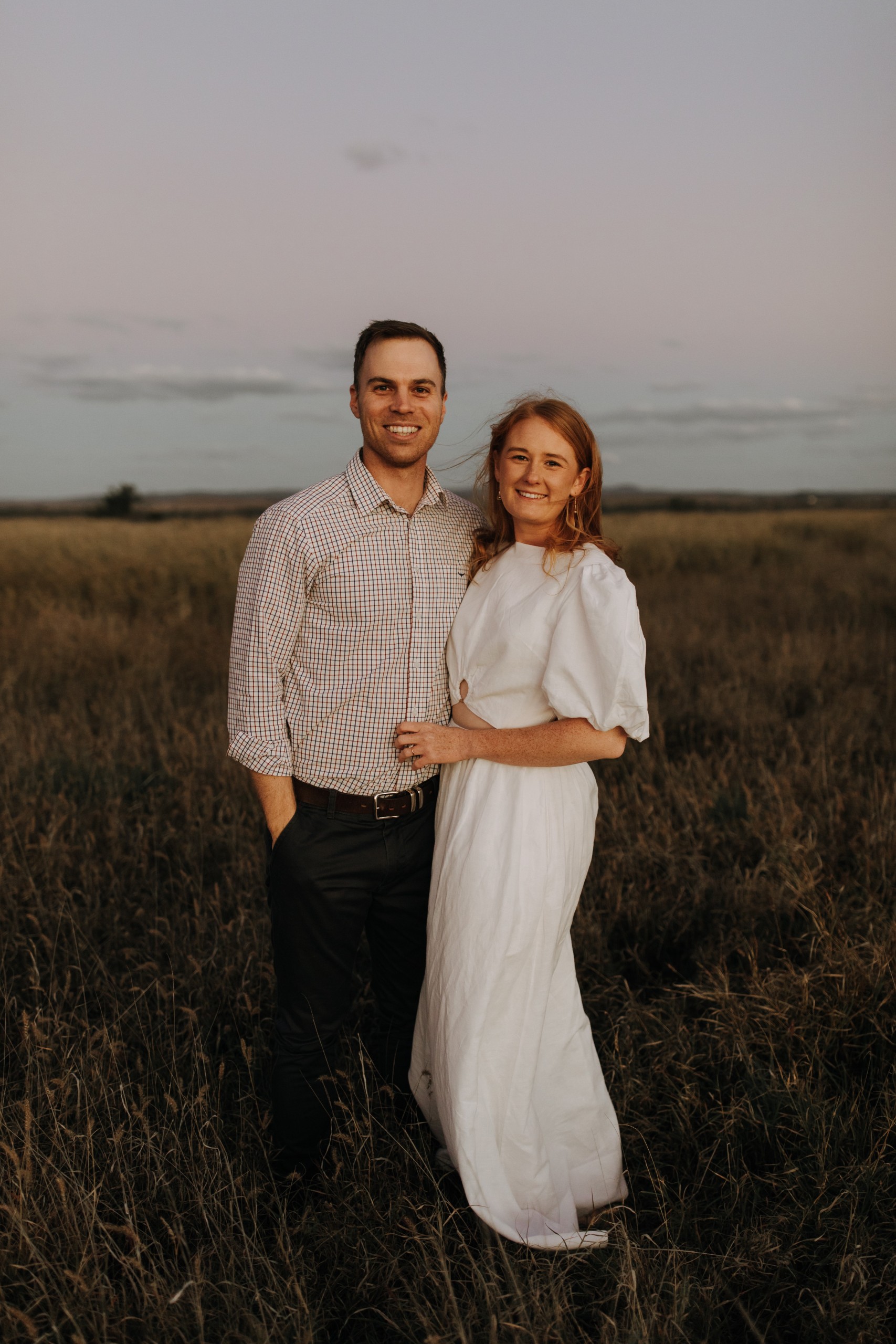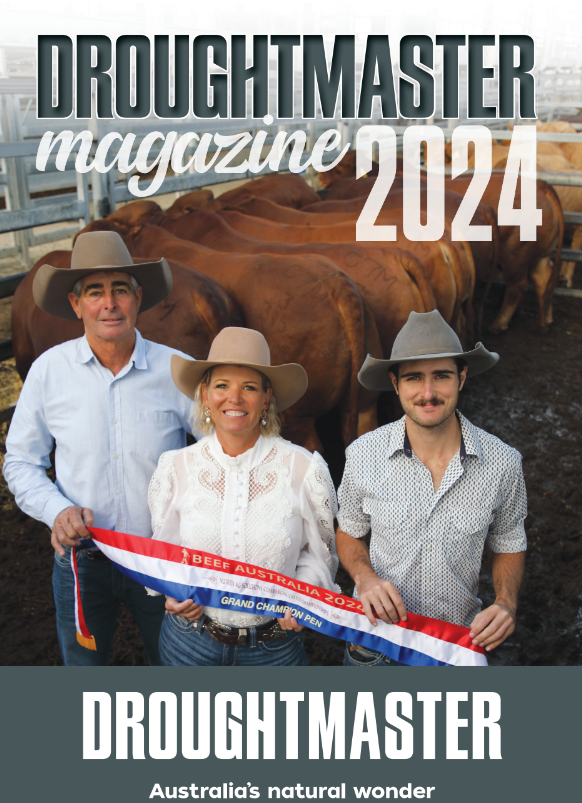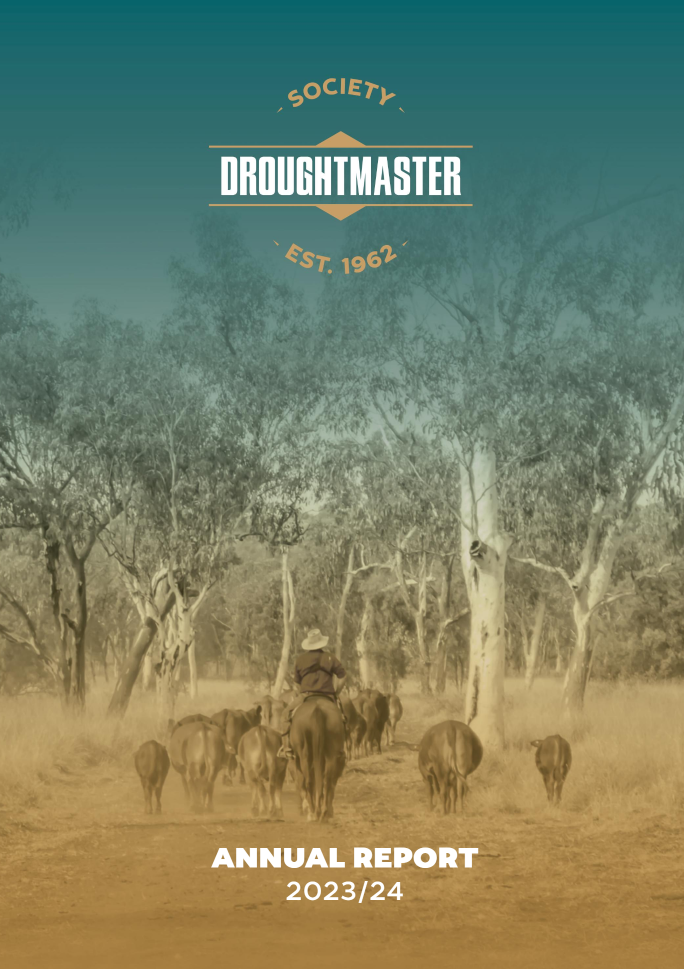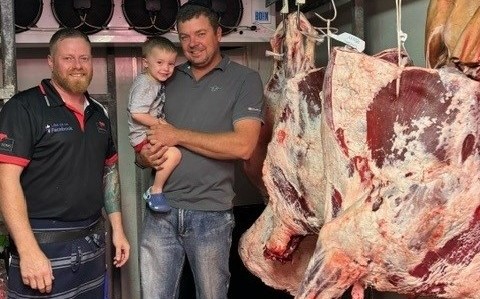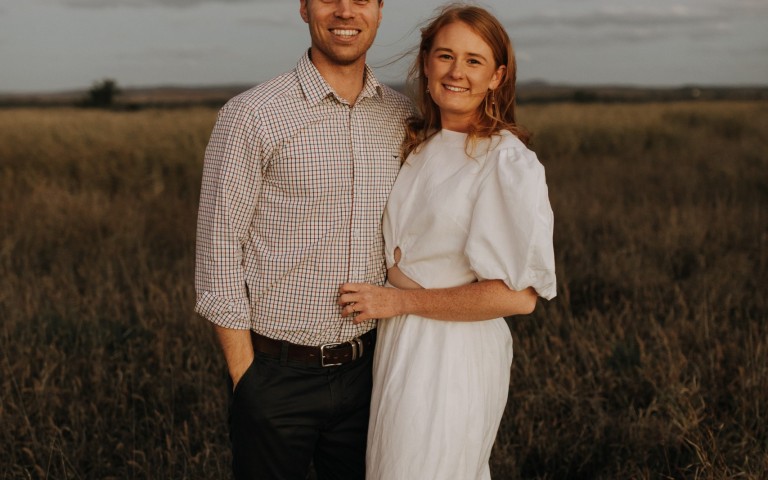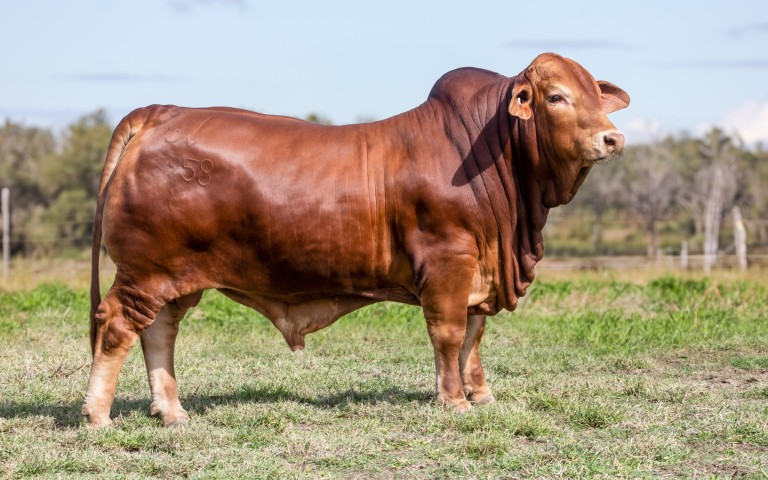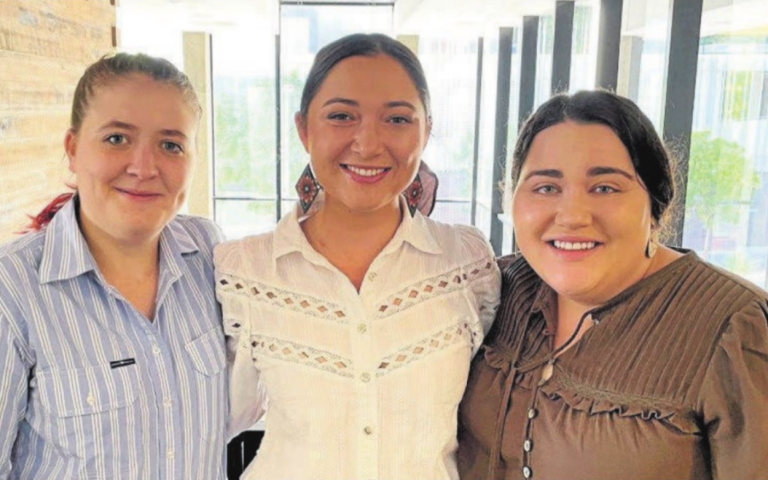Why Droughtmasters carry industry weight in big and small ways
14 Dec 2023While playing a key role in large-scale northern Australian commercial beef herds, Droughtmasters are increasingly finding favour among operators who are looking to balance their cattle business with their commitments to family, personal interests, and careers off the farm.
The multifaceted approach to living and working on the land is a relatively new and evolving chapter in the storied history of the Droughtmaster breed, long renowned for its versatility and adaptability.
In times past, the breed’s flexibility may have been referenced to underscore its capacity to thrive in adverse conditions, cross well with other breeds or provide options to producers looking to hit different markets, whether that’s from live export to grass conditioning, or finishing on grain as a quality eating product for domestic and export customers in retail and restaurant channels.
In more recent times, other traits associated with the breed’s versatility have come to the fore, especially among new entrants to the beef industry or those making the switch from other breeds.
As living and land costs rise, in tandem with energy and fuel prices and all the other inputs required to run a profitable farm, budding producers looking to step-up without sacrificing lifestyle, family-time and income are emphasising the low-maintenance record of Droughtmasters in the paddock.
“They won’t cost you loads of time and money, which for someone like me is vitally important,” says Emily Horne, who runs her Fernleigh Star Droughtmaster stud at Theodore.
Operating three days a week as a vet for Moura Veterinary Clinic, about 40 minutes’ drive from the property, Emily will spend the remainder of her working week tending to the stud and commercial herd, while husband Nathan works as a financial planner in Biloela and Monto.
It was Emily’s parents, Cec and Elaine Pelling, founders, and principals of the Fernleigh Droughtmaster stud, who introduced their daughter to the breed’s positive attributes and enduring qualities.
With her parents’ assistance, Emily established her own Fernleigh Star Droughtmaster stud as a teenager in 2009, where 50 stud breeders from the Star prefix now co-mingle with about 300 stud breeders from the Fernleigh prefix on adjoining blocks over 2025 hectares.
The commercial side of the operation, which runs similar numbers, will market feedlot steers and cull heifers.
“Like a lot of people in our position, we’re generally time-poor and most of our time on the property is consumed with making repairs – it’s definitely not on the cattle,” Emily says.
“In terms of the livestock, we have to feed them when it gets dry, but overall, they are not an intensive breed to look after because they are very good at being tick and fly resistant.
“Being a vet in Central Queensland, I see a lot of the conditions that other breeds are susceptible to, such as pink eye, and the added burden this places on costs to treat.
“You don’t get that additional financial strain with Droughtmasters.”
Further south on the sprawling Sunshine Coast, where land is fiercely contested for the lifestyle benefits buyers seek, Marcus Swan runs Aurora Droughtmasters with 25 stud breeders on 40 hectares at Black Mountain.
Operating since 2018, and founding the stud in 2019, Marcus could see no other option than to invest in Droughtmaster genetics.
“As soon as I came across the Droughtmaster, I knew that it was the breed for us because I work away, so I need cattle that can look after themselves in all areas, but particular attention to easy calving traits, fertility, good foragers and good temperament,” Marcus says.
“While I’m away, the property is run by my partner, Alicia, and our farmhand. When I’m back, we focus on a campaign-style ‘maintenance and improvement’ program.”
With the aim of producing a breeding group of high-quality females from select genetics, the exercise for Marcus and Alicia is made even more challenging by Black Mountain’s soil that lacks nutritional value on steep, tick-carrying coastal Seteria country.
“We are always trying to improve the soil and pasture with a variety of seed and methods, “Marcus says.
“At the end of the day it’s marginal at best, but the Droughtmaster cattle do well in these conditions, and the hills build good muscle complementing sound structure right from the get-go.
“Essentially, it’s a good breeding block, because they’ll do well wherever they go from here.”
Marcus says he will remember 2023 fondly as the year Aurora first entered the bull sale ring, with a debut appearance at the Droughtmaster Diamond Genetics Sale at Silverdale where they sold Aurora Alf to a local commercial breeder.
Emily says that despite her stud’s size, she too is proud to be playing a strong industry role in supplying commercially relevant bulls to producers where they need them, usually at the
Droughtmaster National Sale, the Roma Droughtmaster Sale, some paddock sales and sometimes the February All Breeds Sale in Rockhampton.
“We are a proud breeder of commercially relevant bulls and that’s why we have loyal repeat buyers,” she said.
Membership data from Droughtmaster Australia suggests breeders like Emily and Marcus are no longer in the minority, with regions like Southeast Queensland now boasting more members than anywhere else in the country and currently sitting at a ten-year high – achieved during a year in which the breed society won a national business award for lifting its membership and reinvigorating its brand.
The year will also be memorable for Droughtmaster stud breeder Wayne York, who breeds both Droughtmaster and Simmental stud cattle through his Karragarra stud near Emerald.
In October, buyers purchased the entire Karragarra draft offered at the Roma Droughtmaster Sale, posting a sale average of $11,750 and the top price of $28,000.
“I was humbled by the result and still can’t believe the success we had,” Wayne said.
“But in saying that, you always know you’re in with a chance to succeed with Droughties because they are such a quality animal and so well suited to Australian conditions.
“They are consistently known for versatility, high fertility, easy calving, low-input animal, so when positioned in front of buyers who are facing uncertainty with seasonal and market conditions, those attributes make them a very compelling product.”
Feature Photo: Nathan and Emily Horne, Fernleigh Star Droughtmaster stud, Theodore, find the low-maintenance breed ideal for incorporating their off-farm careers into their successful cattle enterprise.
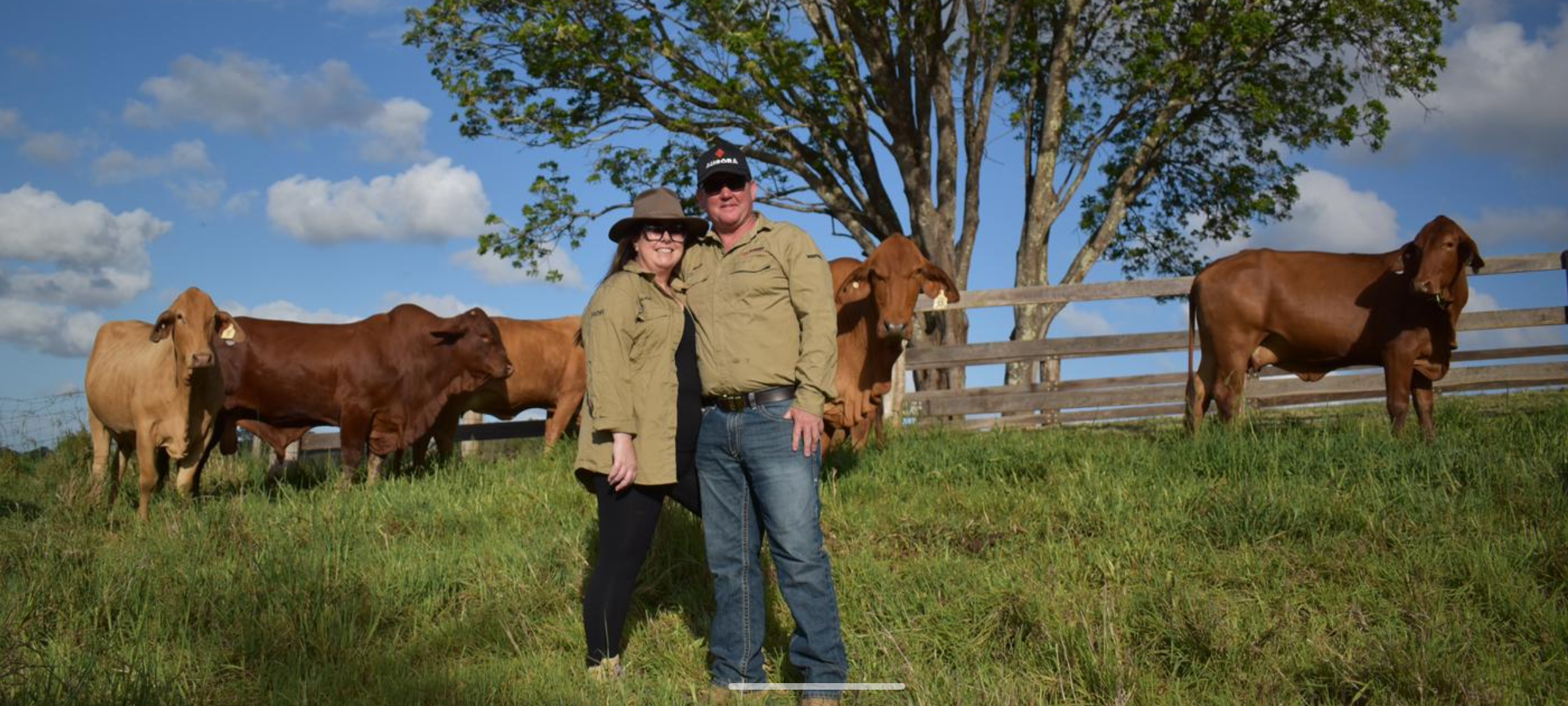
Marcus Swan and his partner, Alicia, Aurora Droughtmasters, Black Mountain on the Sunshine Coast.
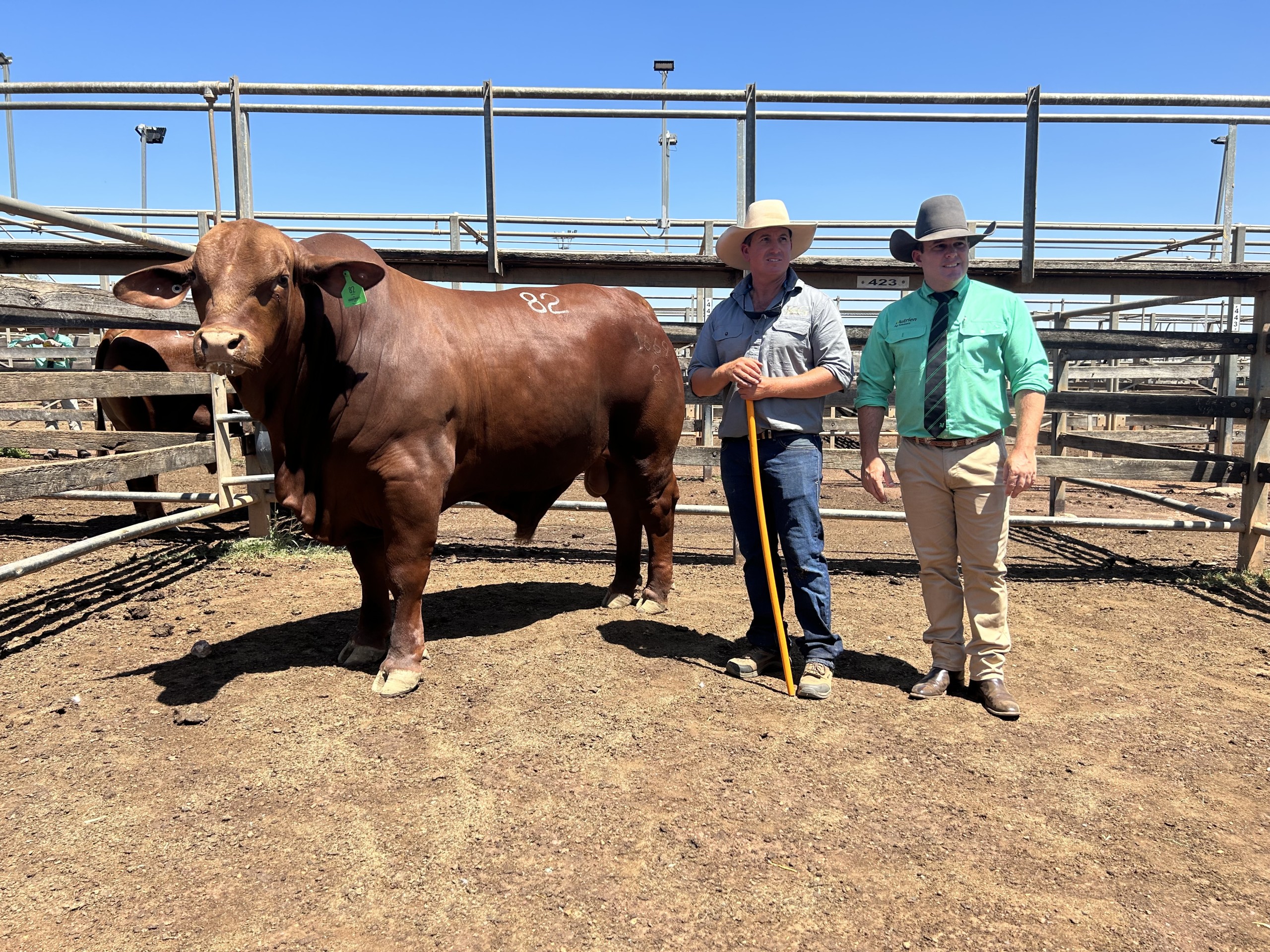
Wayne York, Karragarra Droughtmasters, with top price bull of the Roma Droughtmaster Bull Sale and Nutrien auctioneer, Dane Pearce in October 2023.
